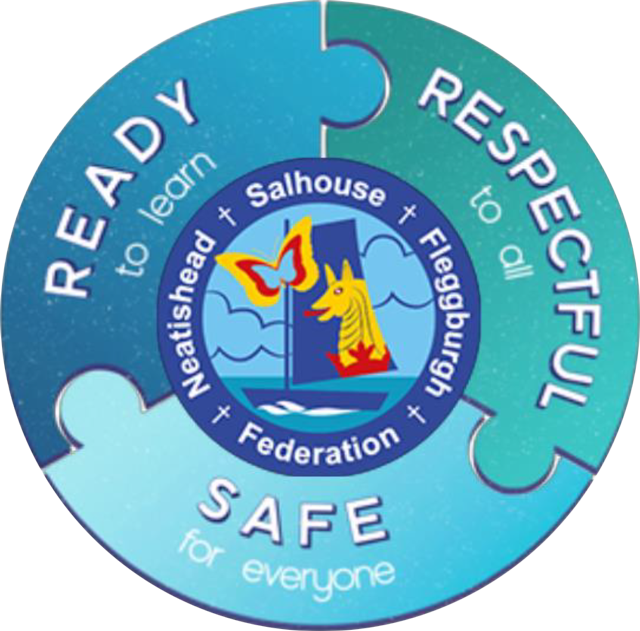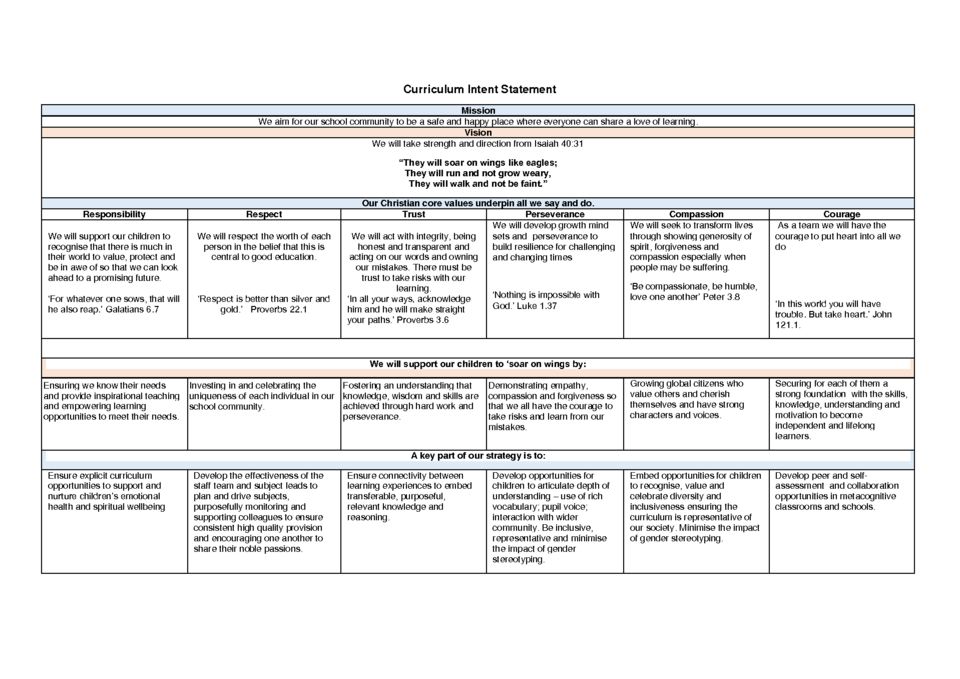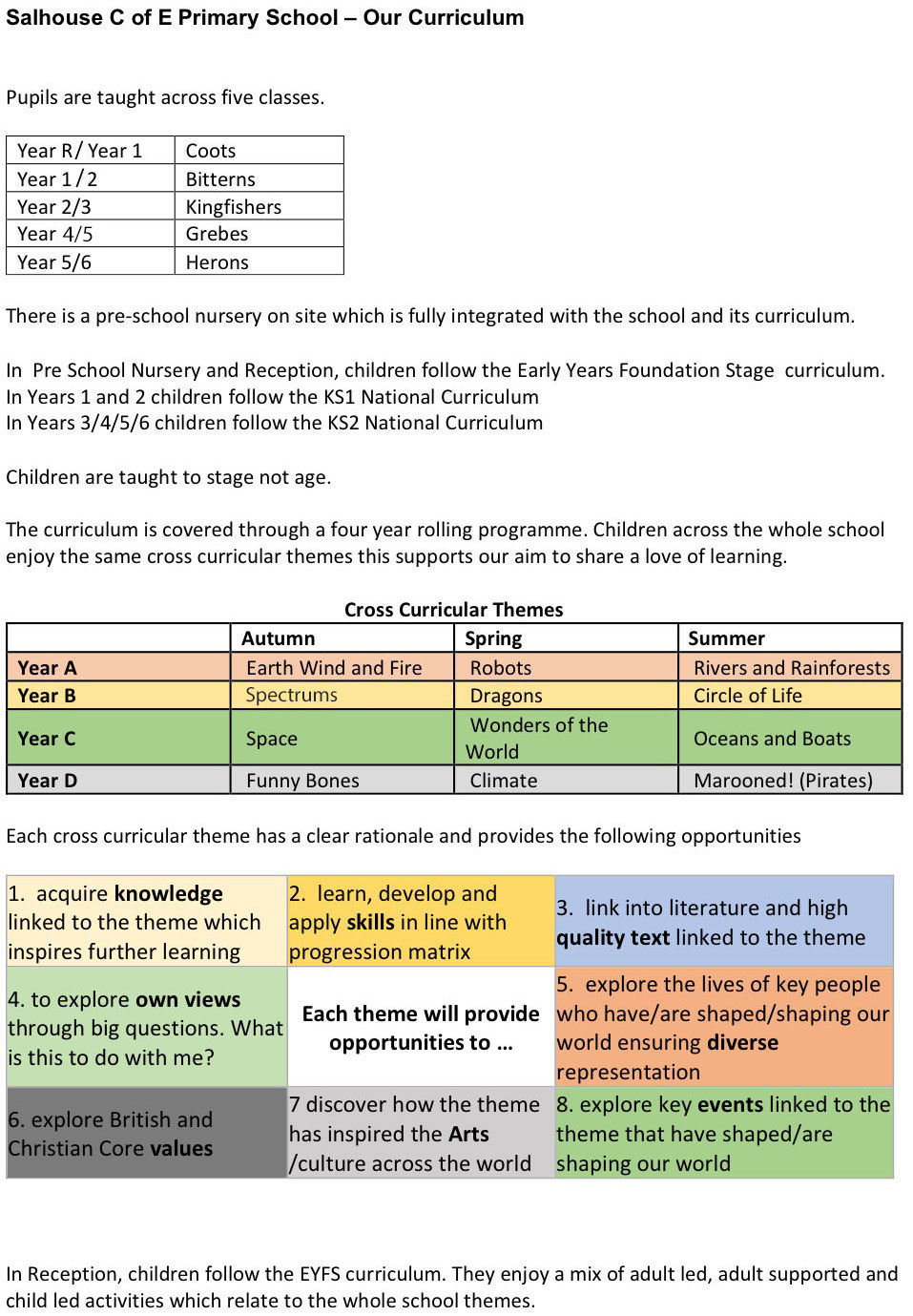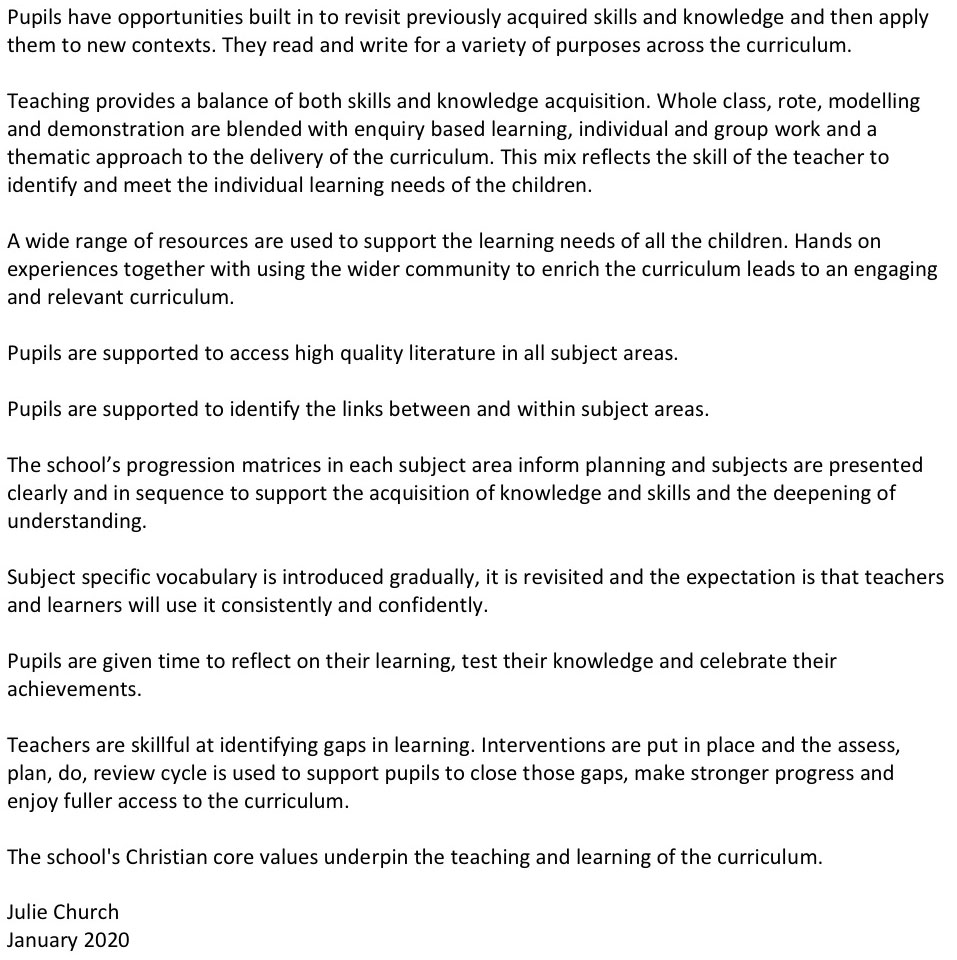Curriculum Implementation
Our curriculum consists of planned and unplanned experiences in school and out: lessons, themed days, circles, Collective Worship, clubs, sports, Forest School, trips and visits, workshops, residential trips, fund raising, community work, performances and high levels of integration across the age range.
Outcomes are designed to meet the requirements of the Early Years Foundation Stage Curriculum and the National Curriculum and also to develop the skills needed for learning and for life.
Our engaging curriculum is designed collaboratively. Subject specific skills are scaffolded within a cross-curricular theme each term. In order to ensure that progression and balance is maintained, the programmes of study are then developed into medium term plans which clearly highlight the learning objectives, lines of inquiry, assessment opportunities, differentiated tasks as well as links to other subjects. Teachers translate these plans into smaller units: half term, weekly and daily plans where the specific needs of the learners are addressed with reference to the progression plans for each subject to ensure gaps in learning are minimised and children feel confident and ready for the next stages of their learning.
Each class teacher shares termly curriculum plans to provide parents/carers with information about the learning ahead with ideas for extending children’s learning at home and sharing opportunities for parents to be involved at school.
We understand children must feel motivated to engage with their learning. For that reason, our curriculum is child-centred. Children will be motivated when they are feeling emotionally and physically well. Teachers and parents work closely with pupil and family support systems to lift barriers to learning. Building strong relationships is key to fully accessing the curriculum.
Teachers support the acquisition of a rich language through using subject specific vocabulary and high quality text. Teachers know that allowing children to lead the learning will have appositive impact on outcomes. Pupils are supported to lead their own learning through developing metacognitive classrooms, self and peer assessment, leadership roles and by having a strong pupil voice which is listened to.
The curriculum is reinforced by the school’s Christian Core Values. These are taught on their own and through all areas of the curriculum, including Collective Worship. The spiritual, moral, social and cultural development of our pupils and their understanding of British Values are woven through the curriculum.
The school environment is used creatively to support learning. Teachers, support staff and pupils identify the need for resources to support teaching and learning.
Staff are supported to share best practice within school and across the federation and cluster.





